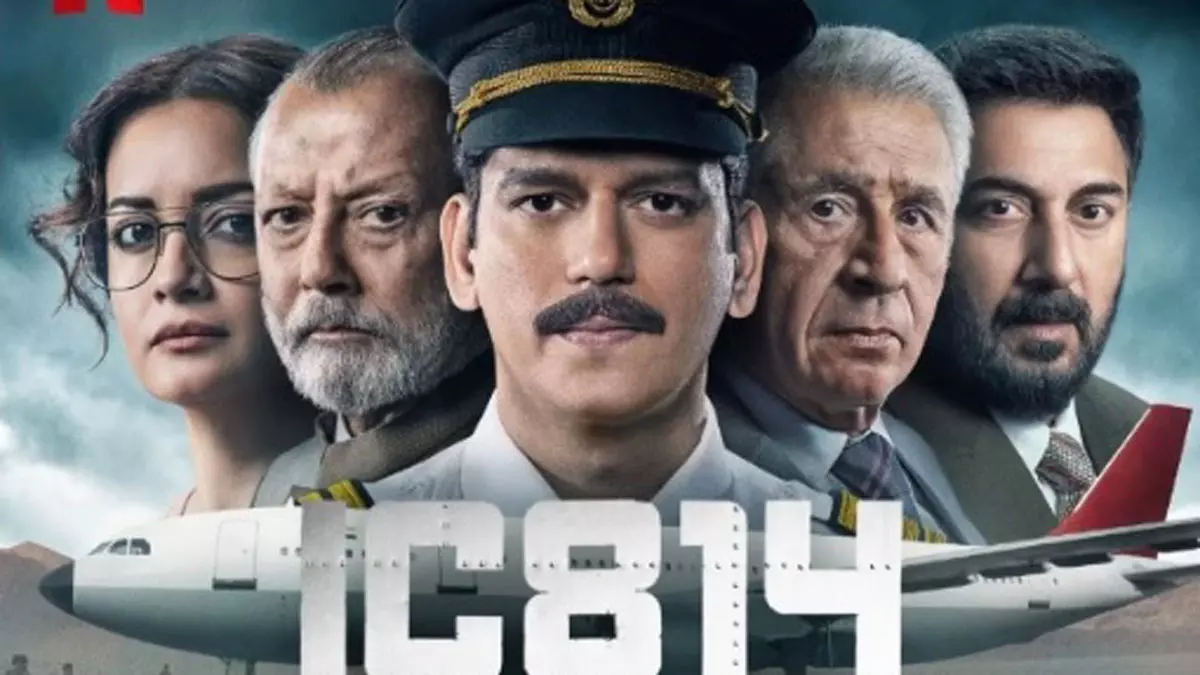IC 814: The Kandahar Hijack Review

Anubhav Sinha’s previous film, Shomidoor (2023) was concerned with the migrant crisis that arose out of the coronavirus outbreak in the 2020 lockdown. In that film, there was a lot of blend between actual and imagination-based events, nevertheless, he made a well-polished story. However, with his first web success, IC 814: The Kandahar Hijack, Sinha seems to take on the imposing task of bringing out the story of a historical hijacking with precision, impartiality, attention to detail, and daring, head-on.
IC 814: The Kandahar Hijack tells the story of the well known incident of the Indian Airlines Flight 814 hijack in 1999. The armed -attack took place on a flight with 180 passengers that had taken off from Kathmandu towards New Delhi a few minutes after the aircraft had taken off. It had stops in various countries before it finally made its way to Kandahar, Afghanistan, then under Taliban rule and a sanctuary to Osama bin Laden. This hijack occurred as the world readied itself to mark the turn of the millennium and will eventually change the course of events in relation to global terrorism.
In order to tell such a story, one has to be careful and respect the truth, the aspect which Sinha completely adheres to. For the first time in his career, he holds all the events as they occurred, taking artistic freedom from the narrative of his earlier projects. This degree of devotion to the truth of the matter is never a burden to the series; rather it adds quite a number of layers to the enterprise as it captures all aspects from the moment of the passengers’ tribulations, to the political and administrative braids.
Sinha’s attention is not to creating a standard hijack thriller to the audience in the mask of shrugging the genre of yacht hijacking thrillers. There are some films like Ram Madhvani’s Neerja which are Indian standard setters in this genre but here IC 814: The Kandahar Hijack does not adhere to this standard. This series provides not just a chronicled version, but also details the emotions of the hijacking dramatization; the airline staff is not just a working mask but one who has gone through challenges and has a life. Patralekhaa’s nurturing instinct and emotional portrayal of air hostess Indrani draws out great affection towards the passengers as if they were her children. Air hostess Chhaya played by Aditi Gupta Provides what the core characters are really made of and makes you yearn to know the story of these characters away from working. Vijay Varma as Captain Sharan Dev stands out for me when he rides through the turmoil of being in the middle of a life-and-death affair, in control and in charge at the same time.
Watch the trailer here:
The series details only a handful of relevant character histories but does not necessarily bog down the viewer into details, just enough to keep the storyline at a steady development and the attention on the main plot. The tension-strain of the character of an orthopedician unable and unwilling to treat a wounded passenger is a micro scheme of the larger problem in the scientific service and politics: what to do, and who to act in the times of conflict.
The series is devoid of such immediate pulse-racing action that is the hallmark of hijack scenarios. Instead, it adopts a drier, more realistic viewpoint than what transpired. The way in which the hijackers gain access to the aircraft reflects the vulnerabilities that are usually prevalent in international airports and creates an uneasy realism. It is during these ingenious forced landings that the series reaches its most intense moments with even a frantic shot of Vijay Varma’s character collapsing in despair after he manages to steer the plane back into the Lahore airport runway.
An interesting aspect about this is the insight into how the passengers themselves are affected by the most distressing of situations, an effect that is present in this specific series. At some point in time, prisoners and hostage-takers join arms to sing a game of antakshari and smoke, a rather curious scene that encapsulates the ‘weirdness’ of the scenario. This fresh grip brings back human connection to the conflict proving that even in the worst of situations, human being still try to bond. however, this peace never lasts long as even the crew plans to take down the hijackers, portraying the human emotions and instincts that were internally suppressed.
The book, IC 814: The Kandahar Hijack, retells one of the grave crises which India experienced without shying away from the hardships faced by women. Anubhav Sinha’s skillful direction and masterful portrayal of seasoned ensemble cast breathe life to this historical occurrence with sense of decorum and yet captures the interest of the audience. It would not have the thrills that most hijack dramas have bringing the audience to the edge of their seats, instead it offers something deeper; a sensitive and insightful examination of an actual situation which is still fresh in the country’s memories.
Next Story
